-
 Posted on March 18, 2025
NERUPI News March 2025
Posted on March 18, 2025
NERUPI News March 2025
-
 Posted on February 24, 2025
OfS Standards of Evidence Project
NERUPI made a successful bid to the UKRI Policy Support Fund to explore the feasibility of Enhancements to the Office for Students (OfS) Standards of Evaluation Evidence for Access and Participation Plans.
Posted on February 24, 2025
OfS Standards of Evidence Project
NERUPI made a successful bid to the UKRI Policy Support Fund to explore the feasibility of Enhancements to the Office for Students (OfS) Standards of Evaluation Evidence for Access and Participation Plans.
-
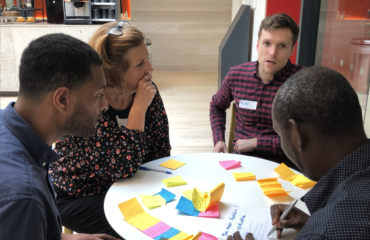 Posted on February 20, 2025
Peer Evaluation Course
If you are involved in evaluation and keen to explore and develop evaluation strategies with colleagues in similar roles this is the course for you. Open to all with a substantial fee reduction for NERUPI and QAA members.
Posted on February 20, 2025
Peer Evaluation Course
If you are involved in evaluation and keen to explore and develop evaluation strategies with colleagues in similar roles this is the course for you. Open to all with a substantial fee reduction for NERUPI and QAA members.
-
 Posted on February 19, 2025
Using STEM teacher networks in teacher professional development
Funded by the Royal Academy of Engineering this project was led by Dr Clare Gartland, now our NERUPI Co Convenor working with Tuba Gokpinar along with teachers engaged in STEM subjects.
Posted on February 19, 2025
Using STEM teacher networks in teacher professional development
Funded by the Royal Academy of Engineering this project was led by Dr Clare Gartland, now our NERUPI Co Convenor working with Tuba Gokpinar along with teachers engaged in STEM subjects.
-
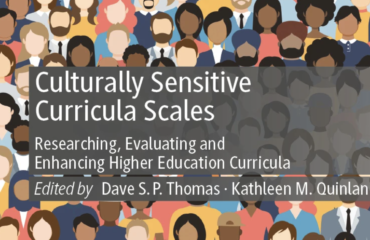 Posted on November 05, 2024
Culturally Sensitive Curricula Scales
We are very pleased to announce the publication of an edited collection featuring several NERUPI members. Culturally Sensitive Curricula Scales, edited by Kathleen M Quinlan and Dave S P Thomas was published as result of a NERUPI Collaborative Project. It outlines the conceptualization, development, and use of a novel set of Culturally Sensitive Curricula Scales (CSCS) developed by Thomas and Quinlan as an instrument for students to rate the cultural sensitivity of their curriculum, as well as a self-reflection tool for educators to use in order to make curriculum changes. The book provides insights from the use of the tools collectively and individually in a range of higher education institutions across the UK, to inform curriculum revision nationally and internationally.
Posted on November 05, 2024
Culturally Sensitive Curricula Scales
We are very pleased to announce the publication of an edited collection featuring several NERUPI members. Culturally Sensitive Curricula Scales, edited by Kathleen M Quinlan and Dave S P Thomas was published as result of a NERUPI Collaborative Project. It outlines the conceptualization, development, and use of a novel set of Culturally Sensitive Curricula Scales (CSCS) developed by Thomas and Quinlan as an instrument for students to rate the cultural sensitivity of their curriculum, as well as a self-reflection tool for educators to use in order to make curriculum changes. The book provides insights from the use of the tools collectively and individually in a range of higher education institutions across the UK, to inform curriculum revision nationally and internationally.
-
 Posted on November 28, 2023
NERUPI Glossary presented at OU conference
The NERUPI Race & Ethnicity Glossary emerged as a result of discussions about language and terminology at the NERUPI Student and Staff Race and Ethnic Equity (SsREE) Working Group.
Posted on November 28, 2023
NERUPI Glossary presented at OU conference
The NERUPI Race & Ethnicity Glossary emerged as a result of discussions about language and terminology at the NERUPI Student and Staff Race and Ethnic Equity (SsREE) Working Group.
-
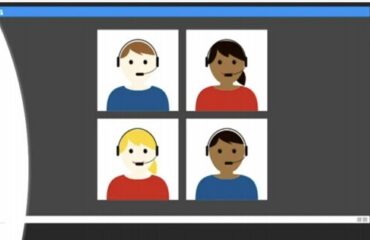 Posted on April 21, 2022
Experiences of Outreach in the Pandemic: Uni Connect Collaborative Research
Posted on April 21, 2022
Experiences of Outreach in the Pandemic: Uni Connect Collaborative Research
-
 Posted on March 10, 2021
The Post-Covid Shift to Digital Learning & Teaching - A Review of Practice
In June 2020, the Secretary of State for Education commissioned Office for Students chair, Sir Michael Barber, to conduct a review of the shift toward digital teaching and learning in English higher education since the start of the coronavirus (COVID-19) pandemic. This OfS report includes key findings from the review, recommendations and selected case studies. NERUPI too is supporting its members with event themes and resources looking at online delivery and evaluation. See the full article for the links and more.
Posted on March 10, 2021
The Post-Covid Shift to Digital Learning & Teaching - A Review of Practice
In June 2020, the Secretary of State for Education commissioned Office for Students chair, Sir Michael Barber, to conduct a review of the shift toward digital teaching and learning in English higher education since the start of the coronavirus (COVID-19) pandemic. This OfS report includes key findings from the review, recommendations and selected case studies. NERUPI too is supporting its members with event themes and resources looking at online delivery and evaluation. See the full article for the links and more.
-
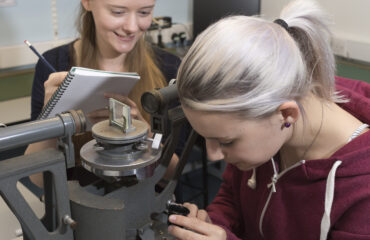 Posted on October 19, 2020
ASPIRES 3 project update and spotlight on the impact of the COVID-19 lockdown on 20/21 year old post-millennials in England
The Science Capital newsletter shares the first findings from ASPIRES 3, the third stage of the research project investigating the science and career aspirations, and trajectories, of 20-23 year olds in England.
Posted on October 19, 2020
ASPIRES 3 project update and spotlight on the impact of the COVID-19 lockdown on 20/21 year old post-millennials in England
The Science Capital newsletter shares the first findings from ASPIRES 3, the third stage of the research project investigating the science and career aspirations, and trajectories, of 20-23 year olds in England.
-
 Posted on September 30, 2020
Focus on WP Evaluation - a special edition of Widening Participation & Lifelong Learning
A bumper edition of the WPLL journal with an editorial by Annette Hayton and contributions from Neil Raven, Nona McDuff, Anna Mountford-Zimdars, Liz Thomas, Roberts Zivtins and Julian Crockford among many others.
Posted on September 30, 2020
Focus on WP Evaluation - a special edition of Widening Participation & Lifelong Learning
A bumper edition of the WPLL journal with an editorial by Annette Hayton and contributions from Neil Raven, Nona McDuff, Anna Mountford-Zimdars, Liz Thomas, Roberts Zivtins and Julian Crockford among many others.
-
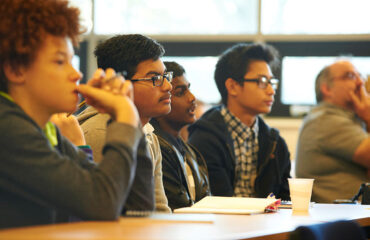 Posted on August 18, 2020
New books on reflective and inclusive learning, teaching and practice
Two new publications for those interested in inclusive, reflective teaching, learning and practice. These books provide both practical guidance and theoretical background for teachers and practitioners.
Posted on August 18, 2020
New books on reflective and inclusive learning, teaching and practice
Two new publications for those interested in inclusive, reflective teaching, learning and practice. These books provide both practical guidance and theoretical background for teachers and practitioners.
-
 Posted on June 16, 2020
Why and how the post-Covid world could offer more opportunities for widening participation in England
In this HEPI blog, NERUPI members outline constructive ways forward for widening participation in a post Covid-19 world. They conclude that despite the challenges, there are some exciting opportunities and realistic prospects to be optimistic about the potential for digital and collaborative provision for widening participation.
Posted on June 16, 2020
Why and how the post-Covid world could offer more opportunities for widening participation in England
In this HEPI blog, NERUPI members outline constructive ways forward for widening participation in a post Covid-19 world. They conclude that despite the challenges, there are some exciting opportunities and realistic prospects to be optimistic about the potential for digital and collaborative provision for widening participation.
-
 Posted on June 03, 2020
Including Comparator Groups in HEAT's Tracking Records
Want to make causal claims from your HEAT tracking reports? HEAT have created a new video explaining how.
Posted on June 03, 2020
Including Comparator Groups in HEAT's Tracking Records
Want to make causal claims from your HEAT tracking reports? HEAT have created a new video explaining how.
-
 Posted on May 21, 2020
Admissions, the Virus & Widening Access
We have pulled together some materials specifically around the coronavirus pandemic and its impact on admissions to HE in 2020. We are adding to these regularly so do check back.
Posted on May 21, 2020
Admissions, the Virus & Widening Access
We have pulled together some materials specifically around the coronavirus pandemic and its impact on admissions to HE in 2020. We are adding to these regularly so do check back.
 Posted on March 18, 2025
NERUPI News March 2025
Posted on March 18, 2025
NERUPI News March 2025
 Posted on February 24, 2025
OfS Standards of Evidence Project
NERUPI made a successful bid to the UKRI Policy Support Fund to explore the feasibility of Enhancements to the Office for Students (OfS) Standards of Evaluation Evidence for Access and Participation Plans.
Posted on February 24, 2025
OfS Standards of Evidence Project
NERUPI made a successful bid to the UKRI Policy Support Fund to explore the feasibility of Enhancements to the Office for Students (OfS) Standards of Evaluation Evidence for Access and Participation Plans.
 Posted on February 20, 2025
Peer Evaluation Course
If you are involved in evaluation and keen to explore and develop evaluation strategies with colleagues in similar roles this is the course for you. Open to all with a substantial fee reduction for NERUPI and QAA members.
Posted on February 20, 2025
Peer Evaluation Course
If you are involved in evaluation and keen to explore and develop evaluation strategies with colleagues in similar roles this is the course for you. Open to all with a substantial fee reduction for NERUPI and QAA members.
 Posted on February 19, 2025
Using STEM teacher networks in teacher professional development
Funded by the Royal Academy of Engineering this project was led by Dr Clare Gartland, now our NERUPI Co Convenor working with Tuba Gokpinar along with teachers engaged in STEM subjects.
Posted on February 19, 2025
Using STEM teacher networks in teacher professional development
Funded by the Royal Academy of Engineering this project was led by Dr Clare Gartland, now our NERUPI Co Convenor working with Tuba Gokpinar along with teachers engaged in STEM subjects.
 Posted on November 05, 2024
Culturally Sensitive Curricula Scales
We are very pleased to announce the publication of an edited collection featuring several NERUPI members. Culturally Sensitive Curricula Scales, edited by Kathleen M Quinlan and Dave S P Thomas was published as result of a NERUPI Collaborative Project. It outlines the conceptualization, development, and use of a novel set of Culturally Sensitive Curricula Scales (CSCS) developed by Thomas and Quinlan as an instrument for students to rate the cultural sensitivity of their curriculum, as well as a self-reflection tool for educators to use in order to make curriculum changes. The book provides insights from the use of the tools collectively and individually in a range of higher education institutions across the UK, to inform curriculum revision nationally and internationally.
Posted on November 05, 2024
Culturally Sensitive Curricula Scales
We are very pleased to announce the publication of an edited collection featuring several NERUPI members. Culturally Sensitive Curricula Scales, edited by Kathleen M Quinlan and Dave S P Thomas was published as result of a NERUPI Collaborative Project. It outlines the conceptualization, development, and use of a novel set of Culturally Sensitive Curricula Scales (CSCS) developed by Thomas and Quinlan as an instrument for students to rate the cultural sensitivity of their curriculum, as well as a self-reflection tool for educators to use in order to make curriculum changes. The book provides insights from the use of the tools collectively and individually in a range of higher education institutions across the UK, to inform curriculum revision nationally and internationally.
 Posted on November 28, 2023
NERUPI Glossary presented at OU conference
The NERUPI Race & Ethnicity Glossary emerged as a result of discussions about language and terminology at the NERUPI Student and Staff Race and Ethnic Equity (SsREE) Working Group.
Posted on November 28, 2023
NERUPI Glossary presented at OU conference
The NERUPI Race & Ethnicity Glossary emerged as a result of discussions about language and terminology at the NERUPI Student and Staff Race and Ethnic Equity (SsREE) Working Group.
 Posted on April 21, 2022
Experiences of Outreach in the Pandemic: Uni Connect Collaborative Research
Posted on April 21, 2022
Experiences of Outreach in the Pandemic: Uni Connect Collaborative Research
 Posted on March 10, 2021
The Post-Covid Shift to Digital Learning & Teaching - A Review of Practice
In June 2020, the Secretary of State for Education commissioned Office for Students chair, Sir Michael Barber, to conduct a review of the shift toward digital teaching and learning in English higher education since the start of the coronavirus (COVID-19) pandemic. This OfS report includes key findings from the review, recommendations and selected case studies. NERUPI too is supporting its members with event themes and resources looking at online delivery and evaluation. See the full article for the links and more.
Posted on March 10, 2021
The Post-Covid Shift to Digital Learning & Teaching - A Review of Practice
In June 2020, the Secretary of State for Education commissioned Office for Students chair, Sir Michael Barber, to conduct a review of the shift toward digital teaching and learning in English higher education since the start of the coronavirus (COVID-19) pandemic. This OfS report includes key findings from the review, recommendations and selected case studies. NERUPI too is supporting its members with event themes and resources looking at online delivery and evaluation. See the full article for the links and more.
 Posted on October 19, 2020
ASPIRES 3 project update and spotlight on the impact of the COVID-19 lockdown on 20/21 year old post-millennials in England
The Science Capital newsletter shares the first findings from ASPIRES 3, the third stage of the research project investigating the science and career aspirations, and trajectories, of 20-23 year olds in England.
Posted on October 19, 2020
ASPIRES 3 project update and spotlight on the impact of the COVID-19 lockdown on 20/21 year old post-millennials in England
The Science Capital newsletter shares the first findings from ASPIRES 3, the third stage of the research project investigating the science and career aspirations, and trajectories, of 20-23 year olds in England.
 Posted on September 30, 2020
Focus on WP Evaluation - a special edition of Widening Participation & Lifelong Learning
A bumper edition of the WPLL journal with an editorial by Annette Hayton and contributions from Neil Raven, Nona McDuff, Anna Mountford-Zimdars, Liz Thomas, Roberts Zivtins and Julian Crockford among many others.
Posted on September 30, 2020
Focus on WP Evaluation - a special edition of Widening Participation & Lifelong Learning
A bumper edition of the WPLL journal with an editorial by Annette Hayton and contributions from Neil Raven, Nona McDuff, Anna Mountford-Zimdars, Liz Thomas, Roberts Zivtins and Julian Crockford among many others.
 Posted on August 18, 2020
New books on reflective and inclusive learning, teaching and practice
Two new publications for those interested in inclusive, reflective teaching, learning and practice. These books provide both practical guidance and theoretical background for teachers and practitioners.
Posted on August 18, 2020
New books on reflective and inclusive learning, teaching and practice
Two new publications for those interested in inclusive, reflective teaching, learning and practice. These books provide both practical guidance and theoretical background for teachers and practitioners.
 Posted on June 16, 2020
Why and how the post-Covid world could offer more opportunities for widening participation in England
In this HEPI blog, NERUPI members outline constructive ways forward for widening participation in a post Covid-19 world. They conclude that despite the challenges, there are some exciting opportunities and realistic prospects to be optimistic about the potential for digital and collaborative provision for widening participation.
Posted on June 16, 2020
Why and how the post-Covid world could offer more opportunities for widening participation in England
In this HEPI blog, NERUPI members outline constructive ways forward for widening participation in a post Covid-19 world. They conclude that despite the challenges, there are some exciting opportunities and realistic prospects to be optimistic about the potential for digital and collaborative provision for widening participation.
 Posted on June 03, 2020
Including Comparator Groups in HEAT's Tracking Records
Want to make causal claims from your HEAT tracking reports? HEAT have created a new video explaining how.
Posted on June 03, 2020
Including Comparator Groups in HEAT's Tracking Records
Want to make causal claims from your HEAT tracking reports? HEAT have created a new video explaining how.
 Posted on May 21, 2020
Admissions, the Virus & Widening Access
We have pulled together some materials specifically around the coronavirus pandemic and its impact on admissions to HE in 2020. We are adding to these regularly so do check back.
Posted on May 21, 2020
Admissions, the Virus & Widening Access
We have pulled together some materials specifically around the coronavirus pandemic and its impact on admissions to HE in 2020. We are adding to these regularly so do check back.